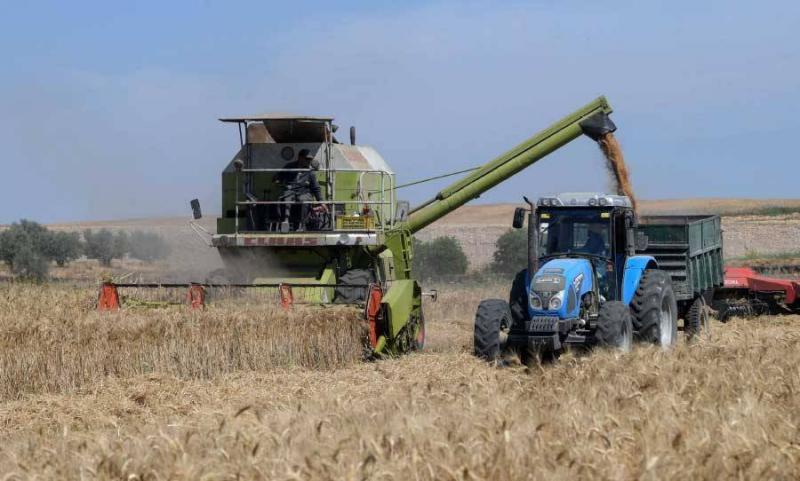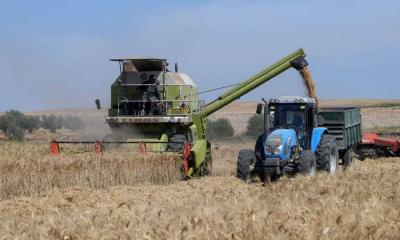Tunisian wheat farmer Hassan Shetwi seeks to draw inspiration from ancient times as he attempts to escape the drought effects caused by climate change by planting old wheat varieties, hoping they will yield crops year-round. Shetwi does not believe that his experience with these alternative wheat varieties will succeed everywhere, but he thinks they might help him persevere after years of low rainfall and heatwaves that devastated much of his harvest last year. He stated, "We have an ancient Tunisian wheat planted in the field capable of producing several times a season, providing us with strategic solutions."
Shetwi's farm is located in the Borj El Amri area in northern Tunisia, historically a breadbasket for Mediterranean civilizations dating back to ancient Rome and Carthage. However, Tunisia has become a complete wheat importer. Drought has affected large areas of North Africa for years, draining Tunisian reserves and drying crops, while a succession of scorching summers has harmed the remaining crops.
Shetwi avoids relying on a single summer crop, hoping to produce at least some wheat even in difficult years. He, along with officials from the Tunisian Agriculture Union, stated that other farmers have also turned to ancient heirloom seeds, but accounts of their experiences are merely stories. Agricultural experts in Tunisia are skeptical that old wheat varieties will protect farmers from the impacts of climate change, noting that modern varieties yield much larger harvests. However, they also argue that ancient varieties may perform better in specific areas or under certain conditions, and Shetwi's experiments deserve follow-up.
Mohamed Rajaiybi, a member of the executive office of the Tunisian Agriculture Union, remarked, "We cannot determine whether they will succeed or fail because we can only assess their effectiveness after broad implementation." Shetwi began working in farming at the age of 12. Now at 64, he continues to look for seeds of ancient grain varieties, including corn, barley, and wheat, to use in his fields. For years, he has cultivated crops using seeds that he says have been used by his family for generations and inherited from his father.
He added that he has also used some ancient varieties from the National Gene Bank and collected seeds from other farmers who claimed they were family heritage, including some seeds not registered in the gene bank. Shetwi stated, "We must rely on our native Tunisian seeds because these seeds, with experience and knowledge, carry solutions and can contribute to many strategic solutions to tackle food crises." Some experts agree with this notion. Hussein Rahili, an agricultural policy expert in Tunisia, emphasized, "Original seeds are rooted in nature... embedded in soil quality and location, and they have the ability to adapt."




